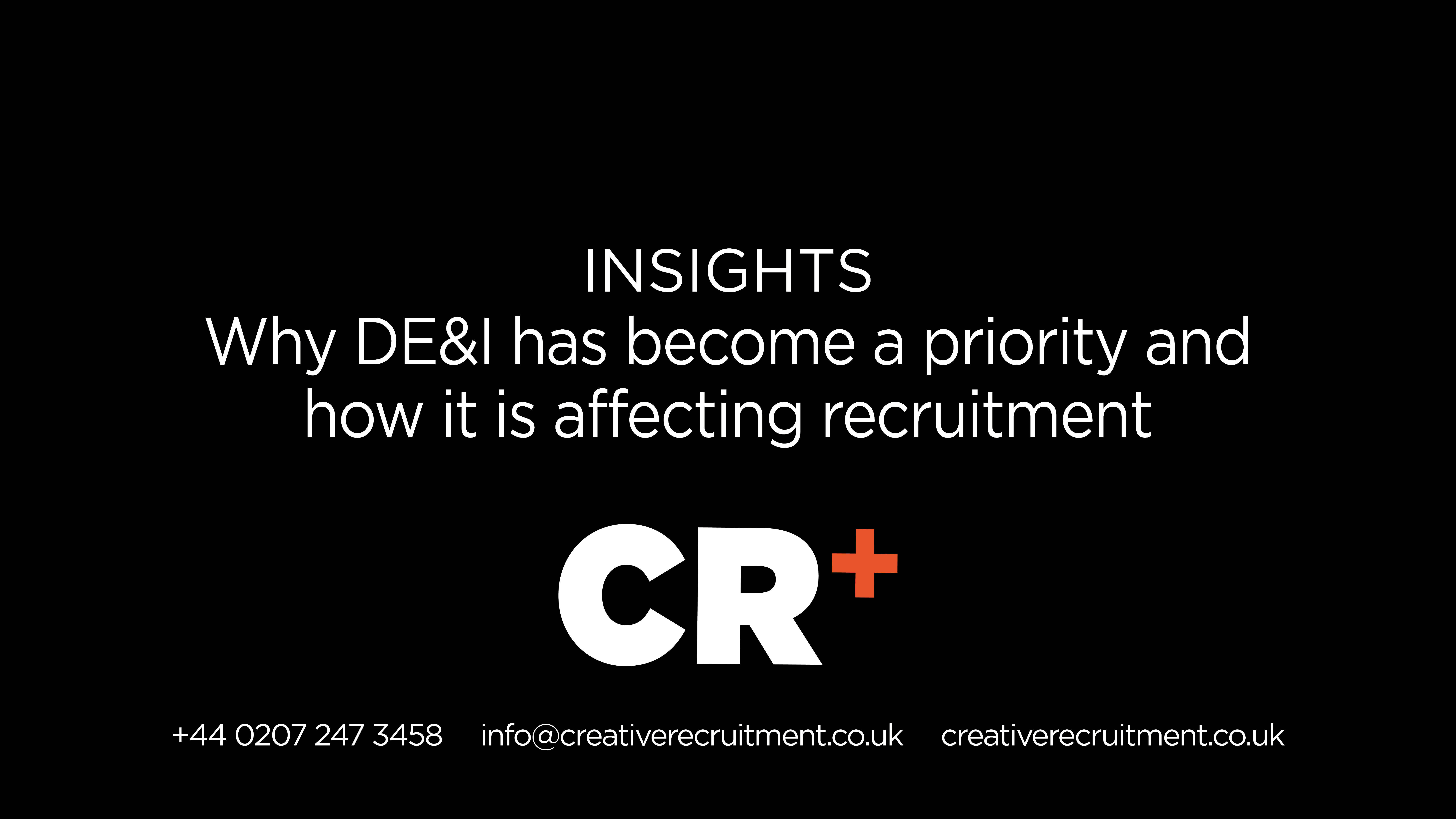DE&I
At first glance, DE&I may seem like just another set of business initials designed to give the buzz-word fans something new to talk about. However, DE&I – Diversity, Equity & Inclusion, to provide its full name - is an essential addition to any company strategy and is fast becoming a major priority for organisations across the globe.
What is DE&I?
The idea of diversity in the workplace has been around since the 1960s. However, it wasn't until more recently that many companies started to understand its importance and how it can only work effectively in collaboration with equity and inclusion. DE&I can be defined as an institution's efforts to create a more welcoming environment for people of less-privileged identities.
The diversity element is concerned with recognising and engaging with differences in values, beliefs, experiences, backgrounds and behaviours, ensuring that an organisation has a balance of diverse employees and identifying how these differences can have a positive business impact by providing a range of perspectives and approaches.
Inclusion could be thought of as putting diversity into practise by ensuring that the diverse workforce a company has created feels valued as individuals and has a sense of belonging and a voice within the organisation.
The newest addition to the team is equity, which focuses on instilling fairness. It means providing all existing and prospective employees with the same access to opportunities. This is not just by making everything equal but by recognising that to make a process fair, some elements may need to be different for specific individuals to achieve the same outcomes or benefits, e.g. accessible workspaces or flexible hours for working parents.
Why is DE&I Important?
Apart from the obvious moral obligation for companies to provide a safe and fulfilling place to work, businesses with a diverse workforce and a culture of inclusivity and fairness tend to be more successful, more productive and better equipped to serve a wide range of clients. They have more engaged employees and therefore enjoy higher retention rates and find it easier to attract the best talent.
A recent Forbes article citing research by Deloitte found that "Organisations with inclusive cultures are twice as likely to meet or exceed financial targets, three times more likely to be high performing, six times more likely to be innovative and agile, and eight times more likely to achieve better business outcomes".
What is the impact on Recruiters?
Candidates have become wise to the personal benefits of working for a company with a robust DE&I strategy, knowing that it will likely be a more satisfying and successful workplace.
According to Channel Futures, as of January 2022, "more and more candidates are asking potential employers about their DE&I initiatives. And many are turning down both interviews and job opportunities if they don't like what they hear."
Some key stats from their research include:
- Recruiters reported that job seekers' inquiries about diversity initiatives went from 33% to 49% between 2020 – 2021
- 44% of recruiters said they have had candidates turn down an interview or job offer because of a company's lack of diversity
- 80% of reporting companies said they had set goals for improving diversity and are using various strategies to make their commitment obvious to candidates.
How can recruiters improve their DE&I to attract the best candidates?
In the current market, candidates have a wide choice of opportunities. If companies want to attract the best talent, they need to be doing more than just paying lip service to a DE&I strategy.
Some practical initiatives which organisations are beginning to implement:
- Writing more inclusive job descriptions
- Showcasing a diverse workforce on the company website
- Giving interviewers Unconscious Bias training
- Demonstrating how they offer employees a voice - e.g. via Courageous Conversations
- Publishing blogs/content that shows DE&I in action
- Assembling diverse interview panels.
It's clear that as we move forward into 2022 and beyond, recruiters may need to shift their focus to ensure that DE&I is top of their list if they want to entice the best candidates to fill their vacancies.
SHARE THIS ARTICLE
RECENT ARTICLES
-
International Women's Day 2023 campaign theme: #EmbraceEquity
about 1 month ago by Diane Scally
-
The evolution of Employee Benefits
2 months ago by Diane Scally
-
How to manage a gap on your CV
3 months ago by Diane Scally
-
Happy Holidays! Here is to a wonderful 2023!
4 months ago by Diane Scally
-
The advancement of parental leave
4 months ago by Diane Scally
-
How to stand out from the crowd when Interviewing
